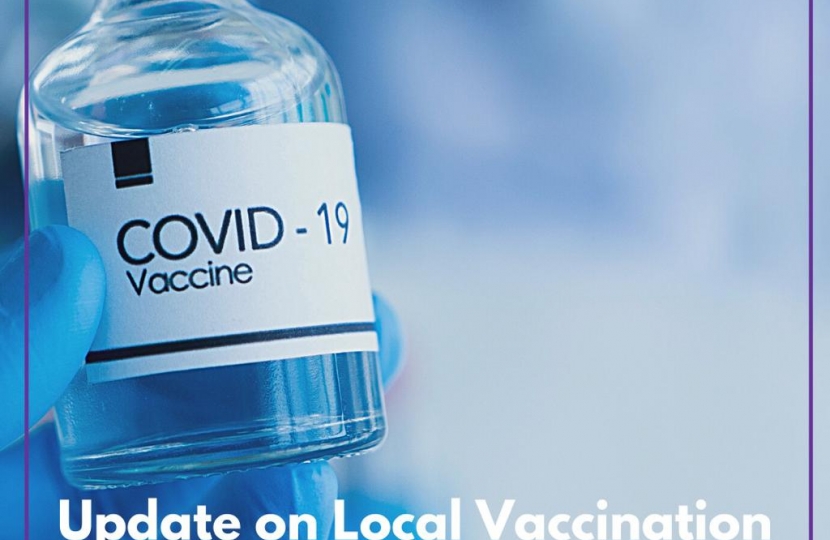
In Leicestershire and Rutland we are now vaccinating:
- People between 65 and 69 and those who are aged 16-64 AND classed as clinically vulnerable due to underlying conditions (list below), and
- Unpaid carers for the elderly and disabled.
This comes after the landmark announcement yesterday that 15 million people have received their first dose of vaccine.
Residents in these groups will be contacted directly and invited to book an appointment by the NHS. You do not need to contact the NHS at this time.
The NHS locally is confident that a vaccine has been offered to all individuals in the JCVI priority cohorts 1-4. As of 7th February a total of 199,054 cumulative doses of the vaccine had been administered across Leicester, Leicestershire and Rutland. Of these 192,702 were first doses, whilst 6,352 were second doses. I will receive an update vaccinations up until February 14th, on Thursday and will share it then,
An enormous thank you to the NHS staff, volunteers, Armed Forces, local Councils, civil servants, warehouse operatives, delivery drivers, and many more, who are working so hard to make sure we can vaccinate our communities.
It is not too late for patients 70 or over, on the Shielded Patients List, or a frontline health and social care worker to come forward for vaccination. This can be done through the national booking service online at www.nhs.uk/covidvaccination.
The system allows patients to choose a time slot and location that suits them at either one of our hospital hubs or the vaccination centre at the Peepul Centre in Leicester.
Anyone unable to book online can call 119 free of charge, anytime between 7am and 11pm seven days a week. If a suitable and convenient slot is not available people can also call their GP practice.
The clinical conditions list is:
• a blood cancer (such as leukaemia, lymphoma or myeloma)
• diabetes
• dementia
• a heart problem
• a chest complaint or breathing difficulties, including bronchitis, emphysema or severe asthma
• a kidney disease
• a liver disease
• lowered immunity due to disease or treatment (such as HIV infection, steroid medication, chemotherapy or radiotherapy)
• rheumatoid arthritis, lupus or psoriasis (who may require long term immunosuppressive treatments)
• have had an organ transplant
• had a stroke or a transient ischaemic attack (TIA)
• a neurological or muscle wasting condition
• a severe or profound learning disability
• a problem with your spleen, example sickle cell disease, or you have had your spleen removed
• are seriously overweight (BMI of 40 and above)
• are severely mentally ill


